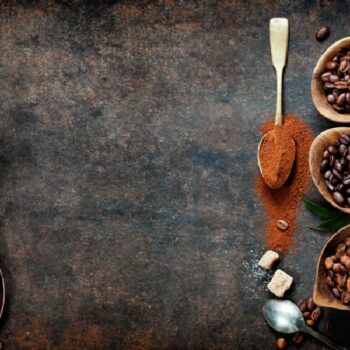You’re beginning to see it everywhere—social media, health websites, and now even major grocery stores. Kombucha is becoming more and more popular. You’ve heard a little about it, but you’re not sure what to believe. Why would you want to consume something with bacteria in it? Is it really mushroom tea? Why should you drink something that resembles pond water?
What is Kombucha?
Put simply, kombucha is tea. Well, at least it’s based on tea. Then you add sugar and a scoby—a symbiotic colony of bacteria and yeast—and let it sit. The results are a slightly fizzy drink with a taste range from vinegary to sugary. It all depends on how long it’s left to brew and if there are any added fruits, herbs, or spices. Some people love the taste, others hate it. But there are so many flavors available that you’re sure to find one you’ll at least be able to tolerate.
The Fermentation Process
Fermenting kombucha is actually fairly complicated. You even have to be careful while brewing the tea for it, as there are certain water to tea to sugar ratios that work best (although they can be adjusted to taste). Since it’s a colony of bacteria, the scoby requires certain temperature and ph levels for it to thrive.
Once all of that is set, the kombucha is left to brew for any time between a week and a month. While using the scoby, the kombucha needs oxygen, but once it’s removed, the rest of the fermentation process requires sealed containers. As a result, CO2 produced from the yeast can’t escape, slightly carbonating the drink. After that, it can be stored in the refrigerator.
Health Benefits
There are plenty of health benefits that can come from kombucha. It’s said that the gluconic and glucaric acids produced during fermentation can help with detoxification. Beneficial bacteria and microbes in our bodies can become depleted, and the bacteria and enzymes in kombucha can help replenish them. Kombucha also contains B vitamins, iron, and a small amount of caffeine, giving you a boost of energy. People have claimed that kombucha has many other health benefits, such as mood enhancement, weight loss, cancer prevention, fighting colds, cholesterol reduction, improved digestion, and immune system stimulation.
Is Kombucha Alcoholic?
Yes, kombucha has a tiny bit of alcohol in it. Think about it: when you hear the word fermentation, what’s the first thing that pops into your head? Alcohol. Most kombucha isn’t left to ferment for too long, so it has an inconsequential amount of alcohol. But there are some that can get you buzzed. As with anything, it’s always best to read the label to find out what you’re drinking.
So now that you know what kombucha is, pick some up and try it out. They’re usually grouped with fruit and veggie smoothies in grocery stores. You’ll find tons of flavors, and after a sip or two, you might even find yourself hopping onto the fermented foods bandwagon.






